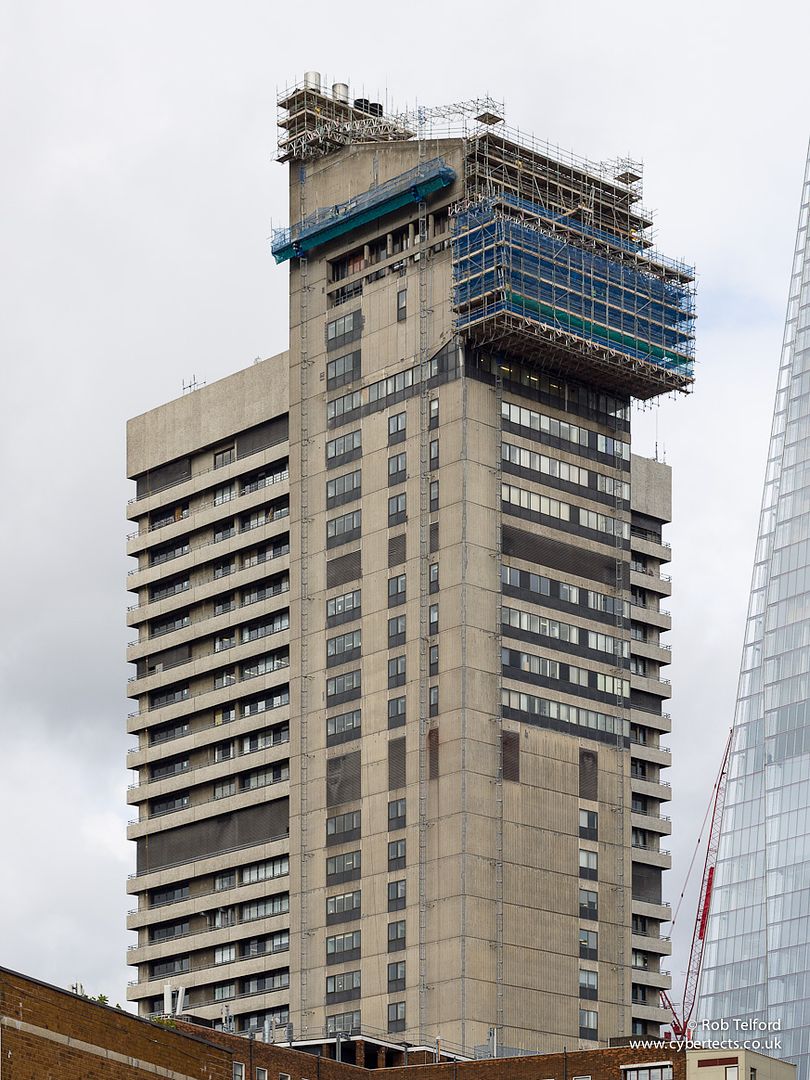London calling
I do find the Guardian very hard to understand sometimes. Ian Martin (not to be confused with the infinitely sounder Iain Martin) has a piece in today's paper that is basically a squeal of baffled rage against modernity, and one that barely makes sense on its own terms to boot.
For a start, it takes as its premise that London has "privatised itself to death" and will, in 100 years, be abandoned to the wilderness. How this squares with the fact that London is growing rapidly (and is at its largest since 1939) and is the largest European city is unclear. How Martin's paean to the glory days of the 1960s and 70s squares with the fact that London's population was shrinking during that time is equally unclear.These are mere details, however, compared with the glaring error at the heart of the piece - that the aesthetics and morals of London are destroyed by private architecture, while they were elevated by the lost days of GLC-sponsored architecture. The comparison he makes is between the "infantile, random collection of improbable sex toys poking gormlessly into the privatised air" that make up the new City and the "beautiful, brilliant, brutalist Hayward, part of a people’s South Bank that had started with the Festival Hall in 1951 and would end triumphantly with the National Theatre in the 1970s." In other words, this is the appalling, hideous monstrosity that private developers are forcing on us:

Ugh
And this is the beautiful Hayward gallery:
And the triumphant National Theatre:
In this context the infantile politics ("the reign of Margaret the Baby-Eater. Through John Major’s steady-as-you-go age of dinge") is just a detail. What's weird is that he seems to have no appreciation of the fact that the greatest crimes against London architecture have been done by the state. He cites the dismantling of the mosaics at Tottenham Court Road as a part of London's soulless privatisation even while blaming it on Crossrail - a public works project. He rails against the architecture of the Shard, and rhetorically demands why there's no hospital in it. Maybe because it's next door, and another shining example of London's public architecture:
He yearns wistfully for the lost space of Broad Street station, which, when it was finally closed, carried about 6,000 passengers a week (140,000 people arrive at London Bridge each morning). This was that great accessible lost public space:
And here it is now, with the public cruelly denied access:
I've had a few drinks there on a summer evening, and there were more people sitting, talking and laughing than used to commute from the old station. Private developers have turned a dead space, where public space amounted to disused concrete railway platforms, into an accessible and fun courtyard. I struggle to see how this is anything but a good thing.
This miserabilist paean for the lost glories of British Rail tea, and a three month waiting list for a crackly landline from BT, and the good old days where working class people could find a decent pit in which to catch silicosis and die at 50, while their middle class representatives could get a proper grant to explore post-modern themes of orientalist post-structuralism is reactionary bullshit that is fundamentally indistinguishable from UKIP's blinkered, one-eyed 1950s nostalgia. Both have their cartoonish enemies (for Martin it's, astonishingly, "Qatari, Saudi, Russian, Indian, Chinese, some UK hedge funds...dicks in haircuts 'doing business'") and both just wish we could turn the clock back, forget all this nonsense about globalisation and go back to those comforting days when Nanny would look after us (for Martin, that's a metaphorical all-providing state; for UKIP I get the feeling it's often a bit more literal).
This is a great time to be alive - the best there's ever been. Things are getting better still. London is bigger now than it was, richer now than it was, prettier now than it was and basically better now than it was. That's why everyone wants to come and live here.



street71.jpg)


0 Comments:
Post a Comment
Subscribe to Post Comments [Atom]
<< Home